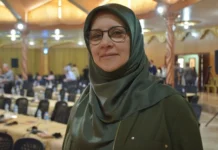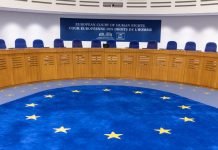Hüda Kaya, a deputy from the Peoples’ Democratic Party, has submitted a parliamentary question addressing Justice Minister Abdülhamit Gül regarding the lack of accessible healthcare for inmates in Istanbul’s Bakırköy Prison, the Bianet news website reported.
According to Kaya female and underage inmates suffering from high fever and muscle aches were not tested or allowed to be seen by a doctor. “Based on the information we received from families and lawyers, sick inmates are prevented from accessing healthcare by the prison administration,” she said.
After news reports that an entire ward had contracted COVID-19, a doctor was assigned to visit the prison on a weekly basis. However, only one inmate has been able to see the doctor so far. “When the patient informed the doctor about the situation in her ward, the doctor requested that everyone be tested. However, the prison doctor rejected the request, saying such testing could not be carried out without a committee decision,” said Kaya.
Kaya demanded to know how the prison doctor had so much authority over a matter concerning the testing of inmates. She asked whether the prison administration had knowledge of the decision. “We do not even know how many members in this committee are doctors,” said Kaya.
She expressed doubts about the treatment offered to sick inmates and the precautions taken by the prison to curb the outbreak.
Cases of COVID-19 in Turkish prisons have increased in the past months. Only last month nearly 30 men in the same ward were infected in Sakarya Ferizli Prison, and two were in critical condition.
The rapidly spreading disease has presented greater concerns in Turkey’s prisons, which were already notorious for human rights abuses, overcrowding and unsanitary conditions before the pandemic.
Inmates who are being treated for COVID-19 are put in quarantine cells and kept in solitary confinement for long periods of time.
The Turkish parliament passed an early parole law on April 14 aimed at reducing the inmate population of the country’s overcrowded prisons due to the coronavirus pandemic. Yet, the legislation excluded political prisoners, including opposition politicians, journalists, lawyers, academics and human rights defenders convicted under the country’s controversial counterterrorism laws. The law prompted calls from the UN, the EU and rights groups for the non-discriminatory reduction of prison populations.















